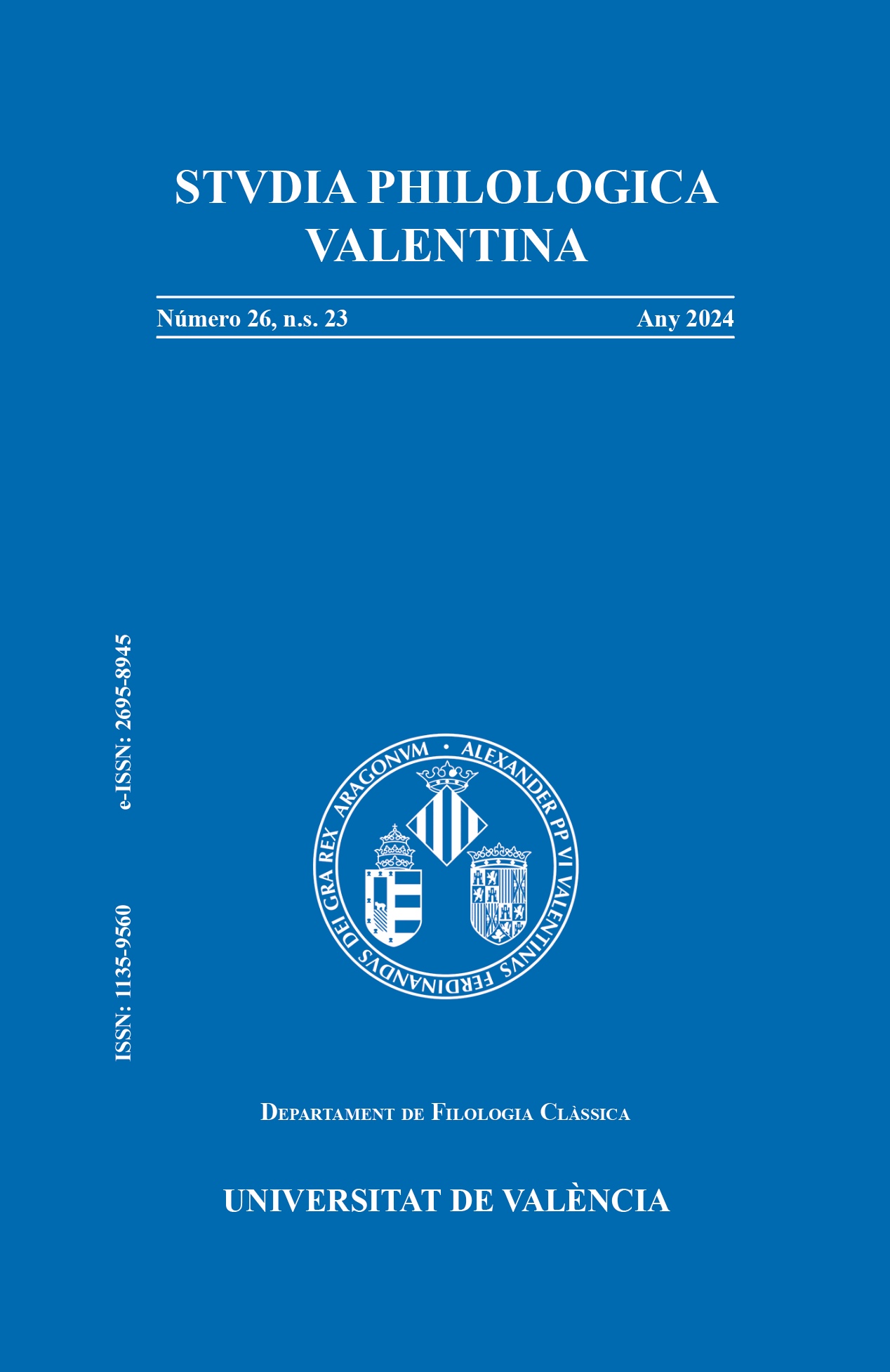(Im)pious Sisterhood: Maximus the Cynic’s Dangerous Liaisons
On Greg. Naz. carm. II 1, 41, Contra Maximum (Once again)
DOI:
https://doi.org/10.7203/SPhV.26.29397 Abstract
Abstract
This paper focuses on analyzing Gregory of Nazianzus’ poem (II 1, 41) against his rival Maximus the Cynic, aiming to reconsider the role of women in Early Christianity from a gender-oriented perspective. In a specific passage (v. 49-53), the author appears to reference female assistants who allegedly supported Maximus’s betrayal, yet this allusion remains obscure and requires further investigation. Following a review of existing scholarship, the paper presents a new analysis and interpretation of the passage in view of a forthcoming critical edition of the entire poem. By placing this reference within a broader context and exploring parallels with female communities in Gregory’s works and contemporary patristic literature, it becomes evident that Gregory’s accusation is related to the emerging phenomenon of «syneisaktism». This thorough and updated analysis aims to achieve two main objectives. Firstly, it offers a new, more detailed, and culturally aware interpretation of the poem. Secondly, by examining its manuscript tradition, including its Syriac translation, it demonstrates the passage's corruption, thereby proposing a new conjecture.
 Downloads
Downloads
Downloads
Published
How to Cite
-
Abstract7
-
PDF0
Issue
Section
License
Copyright (c) 2025 Alessandro De Blasi

This work is licensed under a Creative Commons Attribution-NonCommercial-ShareAlike 4.0 International License.
![]()
This work is licensed under a Creative Commons Reconocimiento-NoComercial-CompartirIgual 4.0 Internacional.



